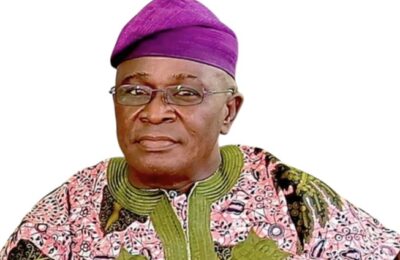Development is the real miracle. A friend who relocated to the United States once confessed during a phone call: “I pray less now than when I was in Nigeria.” Development has answered certain sweat that someone in Nigeria is still crying over. Obedience to the constitution has replaced the long hours of prayer for basic needs. In America, leaders make the needs of citizens look normal, while in Nigeria, witchcraft wears agbada and carries a ballot paper. He added soberly, “Anytime you bind witches in Nigeria, remember you’re indirectly praying against the leaders. Only witches deny people their rights and then introduce national marathons of prayers.” His words haunted me: in Nigeria, people die clutching Holy Bibles, yet it feels like God isn’t answering—because our leaders are louder than our prayers.
The Nigerian man is a prayer warrior not just by faith, but by force. He is forced to kneel not just before God, but before systems rigged to break him. He prays with one eye open—watching the landlord, the boss, the government, the exchange rate. Our mountains are filled with barefoot prophets crying to God over things that a working system should have settled. I once saw a man with his family living under a tarpaulin on those mountains behind Datata and Sawoe Company, opposite Old CBN Junction, clutching scriptures by day and sleeping in cold by night. Prophetic fire on the outside, internal frost within. We have turned faith into a survival strategy, not a spiritual journey. And that is the tragedy.
Behind every Nigerian man’s smile is a grief the government has refused to notice. He works twelve hours to eat once. He raises children he cannot protect. He falls ill and has to choose between medication and rent. When he dies, there’s are few family contributions for burial. If he lives, there’s a pending bill. You see, our democracy is a magician—disappearing the dividends while distracting the crowd. Meanwhile, the rich drive past hospitals they helped to rot, and still wonder why cancer doesn’t respect status.
We speak often of witches, but ignore wickedness in suits, geles and Agbada. The Nigerian man is angry at devils, but the demons are often on payroll. We have demonized the spiritual realm while legalizing corruption. A man should not need to fast to afford fuel. A father should not need a miracle to feed his family. Yet this is the Nigerian template: where the government fails, the church must improvise. So we hold vigils for electricity and midnight prayers for job opportunities. But even God, it seems, is now tired of hearing our echo.
His worth is reduced to how much he provides, yet his environment denies him provision. If he speaks out, he is weak. If he breaks, he is shamed. The average Nigerian man carries in him a haunted silence, a lump in the throat that society calls maturity. Depression is baptized as discipline. Panic is disguised as planning. He is taught to be a wall, but even walls crack when the foundation is ignored.
And here lies the great hypocrisy—we tell men not to cry, yet we mock them when they die. We shout “be strong,” but never give them something to stand on. And when they fall, they are buried with empty platitudes. “He tried.” “Life is hard.” No, life wasn’t hard. We made it hard. Our leaders soaked national compassion in acid and told citizens to drink it. And so, the Nigerian man swallows fire and bleeds invisibly.
The greatest disease in Nigeria now is not diabetes, not even cancer. It is hypertension—the pressure of suppressed dreams and unmet needs. Our elderly die before 60 not because of genetics, but because of governance. Imagine living an entire life under tension, told to hope endlessly, only to die waiting. No pension. No justice. No rest. A country with so many anointed men, yet cursed policies.
Still, he survives. Still, he tries. Still, he prays. The Nigerian man is not lazy; he’s layered. Layers of pain, pressure, performance, and pretense. We must begin to listen to him, not just as a provider, but as a person. Let us stop spiritualizing what strategic governance should solve. Let us treat men not as machines, but as souls. Only then can we redeem their buried agony—and replace it with breath, peace, and dignity.
– Inah Boniface Ocholi writes from Ayah – Igalamela/Odolu LGA, Kogi state.
08152094428 (SMS Only)




